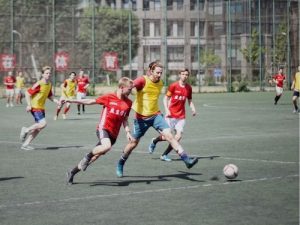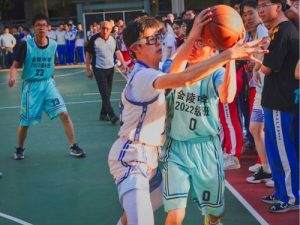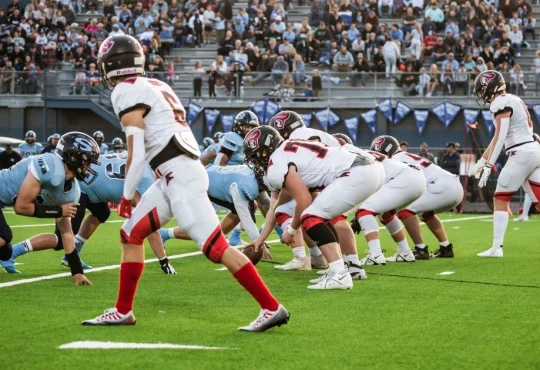Inclusive youth sports are more than just a platform for physical activity—they provide a powerful environment for teaching life skills, fostering social development, and shaping tomorrow’s leaders. In today’s world, the focus on Inclusive Youth Sports is essential to ensure that every young athlete, regardless of race, gender, socioeconomic background, or ability, has equal opportunities to thrive. Creating inclusive sports environments not only benefits individual players but also strengthens teams, communities, and the sports industry as a whole.
Transformative Benefits of Inclusive Youth Sports for Athletes

1. Fostering Equal Opportunities and Access
One of the most significant benefits of promoting diversity in youth sports is creating an environment where every child—regardless of background—can participate, develop skills, and compete. For decades, certain groups have faced systemic barriers that limit access to sports, whether due to economic constraints, geographic isolation, or societal and cultural stereotypes that discourage participation. For example, children from low-income families may struggle to afford equipment, travel expenses, or club fees, while those in rural areas may lack nearby facilities or organized programs.
Inclusive youth sports initiatives aim to dismantle these obstacles through various strategies. Scholarships, reduced fees, and equipment donation programs help level the financial playing field, while outreach programs and partnerships with schools or community organizations bring opportunities directly to underserved populations. Accessible facilities, inclusive coaching, and mentorship programs further ensure that all young athletes—regardless of gender, ethnicity, or ability—have the chance to train, compete, and grow. By providing these resources and support systems, youth sports organizations uncover hidden talent and empower young athletes to develop confidence, resilience, and a lifelong passion for the sport. Fostering equal access ensures that no potential goes untapped, creating a more dynamic, competitive, and diverse sporting community.
2. Promoting Social Development and Cultural Awareness
Participation in diverse and inclusive sports teams offers young athletes much more than physical skill development—it provides a rich environment for social growth and cultural learning. When children train and compete alongside peers from diverse backgrounds, they are exposed to a range of experiences, values, and communication styles. This interaction encourages empathy, patience, and the ability to view situations from multiple perspectives, which are crucial for effective teamwork. Learning to navigate differences on and off the field teaches children how to resolve conflicts, collaborate toward shared goals, and support one another, cultivating a sense of mutual respect that transcends cultural and social boundaries.
The benefits of these experiences extend far beyond the realm of sports. Research indicates that children participating in inclusive teams are more likely to develop strong emotional intelligence, resilience, and adaptability—qualities that benefit them academically, socially, and in their future careers. Inclusive sports environments also help combat negative behaviors such as bullying, stereotyping, and exclusion. These programs strengthen self-esteem, confidence, and overall well-being by fostering a sense of belonging, enabling young athletes to feel valued and understood. In essence, diverse sports teams serve as microcosms of society, teaching children how to compete and engage with the world thoughtfully, respectfully, and compassionately.
3. Enhancing Team Performance and Innovation
Diversity in youth sports goes beyond promoting fairness—it has a measurable impact on team performance and strategic success. Teams of athletes from varied backgrounds bring a wide range of experiences, perspectives, and approaches to problem-solving, which often translates into heightened creativity and adaptability on the field, court, or track. For example, players may offer unique techniques, strategies, or insights drawn from diverse cultural, regional, or personal experiences, providing the team with a broader repertoire to draw upon during high-pressure situations.
Inclusive practices allow coaches and team leaders to recognize and harness these individual strengths, tailoring strategies that maximize each player’s potential. Athletes exposed to diverse teammates are also challenged to think critically, adapt quickly, and collaborate effectively, fostering resilience and innovation. This environment encourages experimentation, strategic risk-taking, and flexible thinking—qualities that can be decisive during competitions where unexpected challenges arise. In essence, a diverse team doesn’t just reflect social values; it becomes a more dynamic, creative, and high-performing unit, capable of leveraging the unique contributions of each member to achieve collective success.
4. Encouraging Lifelong Participation and Community Engagement
Youth sports programs that emphasize inclusivity and diversity are crucial in fostering long-term engagement with physical activity. When children feel welcomed, respected, and valued within a team, they are far more likely to develop a lasting passion for sports. This sense of belonging motivates continued participation and encourages the adoption of healthy habits, such as regular exercise, teamwork, and goal-setting, that can extend well into adulthood. By creating positive early experiences, inclusive sports programs help children view athletics as an enjoyable and rewarding part of life, rather than a source of stress or exclusion.
The impact of inclusive youth sports extends beyond individual athletes to families and communities. Programs that actively involve children from diverse backgrounds often inspire parents, siblings, and residents to become engaged supporters—whether by volunteering, sponsoring teams, or attending games. This creates a ripple effect, strengthening community bonds, increasing local investment in facilities and resources, and ensuring that youth sports programs remain sustainable and accessible in the long term. Ultimately, fostering inclusion in sports benefits today’s young athletes and cultivates a culture of participation, support, and engagement that resonates through generations, helping communities thrive both on and off the field.
5. Creating Lifelong Engagement and Positive Community Impact
Inclusive youth sports programs provide a foundation for cultivating lifelong engagement with physical activity. Environments where participants are welcomed, respected, and accurately represented foster strong, enduring connections to sports that extend into adolescence and adulthood. Athletics within these programs emphasize more than competition, focusing on personal growth, teamwork, and enjoyment, while promoting habits that support long-term physical health, confidence, and resilience.
Beyond individual benefits, inclusive youth sports foster strong community ties. Programs that welcome children from diverse backgrounds often inspire families to get involved through volunteering, attending events, or mentoring younger athletes. This engagement fosters a supportive ecosystem that benefits participants and the broader community. Cities and towns that invest in such inclusive programs tend to experience broader, more favorable outcomes, including healthier populations, stronger social cohesion, and a shared sense of purpose. Over time, these initiatives cultivate a culture of participation and inclusivity, where sports serve as a unifying force that strengthens individuals and the communities to which they belong.
Real-World Examples of Inclusion in Action

Several organizations and initiatives around the world are setting the standard for inclusion in youth sports:
Empowering Through Special Olympics
- The Special Olympics provides children with intellectual disabilities an invaluable platform to engage in sports, develop skills, and experience the joy of competition in a supportive and inclusive environment. Beyond athletic achievement, participants gain confidence, resilience, and a sense of accomplishment as they work toward personal goals and celebrate milestones alongside peers. The program fosters social connections, teamwork, and community involvement, helping children build friendships and self-esteem while challenging societal stereotypes. By emphasizing ability rather than limitation, Special Olympics empowers young athletes to realize their potential, inspiring participants and the broader community with stories of perseverance, courage, and triumph.
Championing Gender Equality with Girls Who Play Sports
- The Girls Who Play Sports campaign works globally to break down barriers and close the gender gap in athletics, encouraging girls to participate in sports traditionally dominated by boys. By providing access to training, mentorship, and role models, the initiative empowers young girls to develop confidence, leadership skills, and resilience both on and off the field. The campaign also challenges societal stereotypes and cultural norms that discourage girls from pursuing certain sports, creating inclusive environments where female athletes can thrive. Beyond individual benefits, Girls Who Play Sports inspires communities, schools, and organizations to support gender equality in athletics, fostering a future where every girl can compete, succeed, and lead in the sporting world.
Inclusive Community Sports Programs
- Community soccer and basketball leagues increasingly incorporate adaptive programs explicitly designed for children with physical disabilities, ensuring that sports are accessible to everyone. These programs modify rules, equipment, and playing environments to accommodate a range of abilities, allowing all participants to engage safely and meaningfully. Beyond physical activity, adaptive sports teach teamwork, discipline, and resilience while fostering a sense of belonging among children who might otherwise be excluded. By creating inclusive opportunities, these leagues not only empower young athletes with disabilities to develop confidence and skills but also promote awareness, empathy, and understanding within the broader community.
The Power of Inclusive Athletics
Diversity and inclusion in youth sports are not just nice-to-haves—they are fundamental to developing well-rounded athletes and thriving communities. By actively breaking down barriers and promoting equity, sports programs ensure that every child, regardless of background or ability, has the opportunity to participate, learn, and succeed. Celebrating differences and creating inclusive environments allows young athletes to build physical skills, confidence, resilience, and a sense of belonging that extends beyond the playing field.
When inclusion is prioritized, the benefits ripple outward. Athletes grow into empathetic, adaptable, and socially responsible individuals, teams become stronger and more innovative, and communities are enriched by increased engagement and connection. In essence, inclusive youth sports foster a culture where everyone—players, coaches, families, and communities—thrives together, demonstrating that equitable access and diversity are true game-changers.





